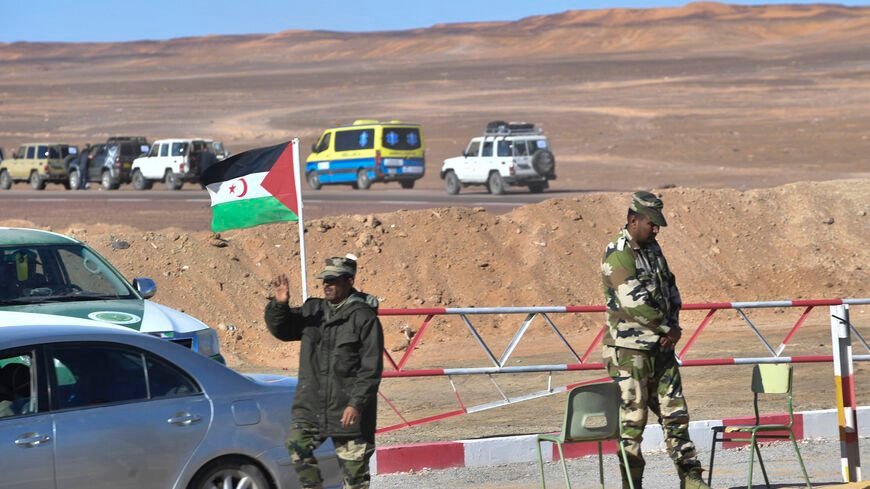Since last June, the two countries have severed business and trade relations over Spain’s support of Morocco’s claim to the contested Western Sahara.
Since June 2022, business and trade between Algeria and Spain have been at a standstill, amid a bitter dispute over the autonomy of the Western Sahara.
Both Algeria and Morocco have laid claim to the vast swath of the world’s largest desert, which was a Spanish colony until the mid-1970s. A 1991 ceasefire deal saw Morocco lay claim to 80% of the Western Sahara, with the rest being held by the Algerian-backed Polisario movement.
While Morocco has offered some limited autonomy, it has affirmed that the mineral-rich territory must remain under its sovereignty. The Polisario Movement, on the other hand, demands a referendum on the region’s independence.
On June 8 last year, Algeria suspended its friendship treaty with Spain after Madrid reversed decades of neutrality toward Western Sahara. The North African country also imposed a blockade on Spain, and the countries have not been trading, except for gas sales, since then.
Spain has been asking the European Commission to aid the businesses impacted by the blockade, which has reportedly cost the Iberian country around €4.4 million a day. Spanish companies have even claimed damages against Prime Minister Pedro Sanchez’s government from the Algeria sanctions.
The European Union has been careful not to take sides, as Algeria is becoming an increasingly important partner for European countries looking for alternative energy sources.
On a visit to Algiers on March 13, EU foreign policy chief Josep Borrell called for a detente between the two countries to resume trade. “Finding a solution to all this is in our common interest,” Borrell said.
But the EU’s words are likely falling on deaf ears, and the role the bloc can play is limited.
Intissar Fakir, senior fellow at the Middle East Institute, told Al-Monitor: “While Spain and the EU are both eager to get past this tension, the EU has little leverage over Algeria.”
The Western Sahara dispute is “a zero-sum game,” she said. “Morocco is getting more demanding in terms of support on the Western Sahara, and Algeria is adamant about cutting off that support. And the EU is stuck in the middle.”
Alissa Pavia, North Africa associate director at the Atlantic Council, said that the only real way for the EU to hurt Algeria is to stop importing its oil and gas, which is highly unlikely.
Italy has reduced its gas imports from Russia to 25%, thanks to an agreement with Algeria, Pavia added. “This puts Algeria in an incredibly strong position vis-a-vis Europe, one that the country will not likely want to backtrack from, and which helps Algeria leverage its case over Western Sahara.”
The blockade has been costly for Spain in terms of lost revenue from exports to Algeria, with hard-hit sectors including food, agricultural products, and raw materials.
“In 2021, Algeria’s non-oil exports to Spain amounted to almost 9%, with ammonia and fertilizers representing the largest shares,” Pavia said. “However, Algeria can easily offset these losses by increasing trade with other European countries such as France and Italy.”
Spain’s main incentive for continuing to support Morocco is migration, she said. “It would rather tolerate a daily loss of 4.4 million euros than risk angering Morocco over the Western Sahara issue and triggering another rush of migrants crossing into its borders,” she said.
Fakir said that Algeria saw Spain’s minor concession as a dangerous precedent, because it is keen to stem the tide of the Western Sahara that had been benefiting Morocco.
But Spain cannot go back on it, she said, because “it would risk souring the relationship with Morocco, which is more expansive than the relationship with Algeria — billions in trade, advanced security cooperation and crucially migration support.”
Source: monitor











Add Comment